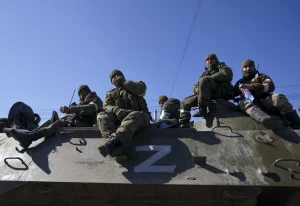
Biggest challenge of European integration is human capital
I often speak at various closed international meetings and always prepare my own discussion points. Maybe it's time to share them publicly for those who might be interested
Recently, I shared these points on European integration.
Several foresights over the past year and a half focused on key factors for Ukraine's successful European integration. Here are the main points:
1. The rule of law is the number one factor. Achieving EU membership as a reward for victory, rather than as recognition of implemented reforms, is a false hope for some Ukrainian politicians.
2. Preserving and developing micro, small, and medium-sized enterprises (MSMEs) is the second crucial factor, though not immediately obvious. Why? Because MSMEs are essential for creating an independent middle class, which drives demand for democracy, good education, and innovation (none of which oligarchs need). In Ukraine, MSMEs are often seen only as a tax source, but their main socio-economic role is much broader. Besides the above, MSMEs support social cohesion, fight poverty (Ukraine is still very poor), and promote regional development. Without strong MSMEs, the country risks becoming a sandwich of oligarchic groups and poor workers paid for "correct" voting. It's easy to destroy MSMEs with hasty, strict regulations, but the EU would then face a larger version of Hungary, which is undesirable.
3. Economic freedom is an obvious factor. At the start of the full-scale invasion, Ukraine ranked 130th in the world for economic freedom. A country with such a low ranking has no chance.
4. Democracy is an obvious factor. Much of Ukraine's economy is post-industrial, relying on people as the main source of added value. Moving away from democracy will drive these people away.
5. Human capital is the hardest issue, involving emigration and immigration.
Emigration means bringing back those who left, influenced by security, infrastructure restoration, and economic freedom. Immigration is about four key issues: economic freedom (is Ukraine a talent magnet or a loser’s haven?), immigration policy (who do we want, not who wants us), the role of language and culture in becoming Ukrainian, and inclusiveness, ensuring society welcomes new Ukrainians.
The European integration of Ukraine is a two-way street: not only is Ukraine joining the EU, but the EU is also joining Ukraine. Otherwise, the process will fail. Look at Turkey's 20-year attempt at European integration, which ended in failure. Blaming just the Turks or Erdogan ignores the complexity of the process.
That’s why there needs to be a clear sequence of actions: first, fundamental reforms like the rule of law, with no compromises. Then, finding complex compromises for a regulatory formula that benefits both Ukraine and the EU.
The first reform should be public governance, especially civil service. Without this, there will be no one to implement the other reforms.
About the author. Valeriy Pekar, Kyiv-Mohyla Academy professor
The editors do not always share the opinions expressed by the blog authors.
- News













































